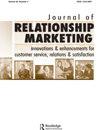感知产品效益与项目管理绩效:感知供应商排名的作用
Q2 Business, Management and Accounting
引用次数: 1
摘要
本文的目的是了解客户对项目管理绩效的看法,以及如果客户认为供应商是最好的或第二好的系统交付项目供应商的感知利益。本研究调查了设施管理行业的2191个系统交付项目。对项目管理变量进行探索性因子分析。假设的检验是用偏最小二乘(PLS)结构方程建模(SEM)与SmartPLS。研究结果表明,调试与预期收益之间存在显著关系,与该公司在业内的排名是第一还是第二无关。当公司是第二好的供应商时,建议阶段被认为与项目结果(产品)提供的感知利益显著相关。系统交付项目的内在结构包括提案、安装和调试三个阶段。此外,在调试阶段,当供应商被认为是行业中最好和第二好的时候,感知到的项目管理绩效与项目结果(产品)提供的感知利益显著相关。与预期相反,并非所有项目管理阶段都是如此。本文章由计算机程序翻译,如有差异,请以英文原文为准。
Perceived Product Benefits and the Project Management Performance: The Role of the Perceived Supplier Ranking
Abstract The aim of this article is to understand customers’ perceptions regarding the project management performance and the perceived benefits if the customers perceived the supplier to be the best or the second-best systems delivery project supplier. This research investigates 2,191 system delivery projects in the facilities management industry. Exploratory factor analysis was employed on the project management variables. The testing of the hypotheses was done with partial least squares (PLS) structural equation modeling (SEM) with SmartPLS. The findings show a significant relationship between the commissioning and the perceived benefits, independent of whether the company was perceived to be best or second best in the industry. The proposal stage was perceived to be significantly related to perceived benefits provided by the outcome of the project (the product) when the company was the second-best supplier. Inherent structure in systems delivery projects included three phases, consisting of the proposal, installation, and commissioning. Also, the perceived project management performance in the commissioning stage was significantly related to the perceived benefits provided by the outcome of the project (the product) when the supplier was perceived to be the best and the second best in the industry. Contrary to expectations, this was not the case with all project management phases.
求助全文
通过发布文献求助,成功后即可免费获取论文全文。
去求助
来源期刊

Journal of Relationship Marketing
Business, Management and Accounting-Marketing
CiteScore
10.20
自引率
0.00%
发文量
7
期刊介绍:
The Journal of Relationship Marketing is a quarterly journal that publishes peer-reviewed (double-blind) conceptual and empirical papers of original works that make serious contributions to the understanding and advancement of relationship and marketing theory, research, and practice. This academic journal is interdisciplinary and international in nature. Topics of interest (not limited to): Evolution and life cycle of RM; theoretical and methodological issues in RM; types of RM, networks and strategic alliances; internal communication, quality, trust, commitment, satisfaction, loyalty, and dissolution in RM; applications of RM in different disciplines and industries; international perspectives in RM; RM strategies in services economy, higher education, and e-commerce; RM, technology, and the Web; profitability and RM; case studies and best practices in RM. If you are interested in becoming an ad-hoc reviewer, please e-mail a brief statement indicating your area of expertise and interest along with a copy of your CV.
 求助内容:
求助内容: 应助结果提醒方式:
应助结果提醒方式:


